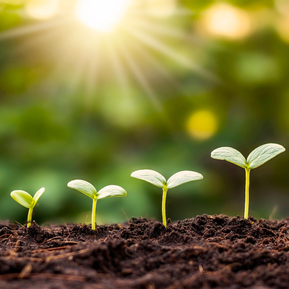
Usually, spring is a time for hope. Hope for longer, warmer days. Hope for new life in the animal kingdom. Hope for the first little sign of flowers, and the first buds and blossoms on trees. And hope for the perfect planting conditions for farmers, conditions that can lead to a plentiful crop.
But this year, while we are not hopeless, our hope is less.
I love planting season. Even after being witness to many decades of it, I still get excited watching farmers turning over their soil, preparing it for the new crop. I love the smell of the fresh dirt, and the possibilities that come with it. I get a thrill out of the idea of putting tiny seeds in the ground and watching while they grow into something remarkable. It’s a miraculous thing, really.
This week though, as we drove along, I thought about the farmers as they prepare for this years’ growing season. It’s not quite time to think about dropping those little seeds into the ground, but it will be upon us before we know it.
The problem this year is not that the farmers won’t be ready. It’s not that they won’t be able to get onto their land to prepare it. It’s not that they don’t have their equipment tuned up and ready. It’s not that they don’t have seed, although this too has increased in price making its purchase more painful. This year, the problem is we haven’t had nearly the moisture we needed this winter. After our dry, dry summer and fall last year, there is daily talk of potential drought conditions. Even if those little seeds are planted with the most care into the most fertile soil, without them being encouraged by rain, or some kind of moisture, many of those planted seeds will never reach their full potential. When planted seeds are watered by the rains, they somehow gain courage, they puff up just enough to begin to sprout. And once that tiny little sprout makes it’s first appearance, other elements join in to encourage it to continue to grow. But it is the encouragement of that first rain that gives it a chance at all.
This of course has had me thinking beyond the farmers fields. I’ve been thinking about all the seeds that have been planted in me, and those I have planted in others. While I know that many seeds planted in me have taken root and flourished, as have many of those I’ve planted in others, I can’t help but wonder if it’s possible that some of them never reached their potential due to the same issue our farmers currently face; lack of rain, or in our case, lack of precious encouragement.
How easy it is for us to say to a colleague, ‘Oh, you’d be great leading that team’, planting the seed in them that perhaps they should put their name forward for the position. Or perhaps we say to a teenager, ‘Oh, I could picture you on that team. Or in that play.’ Or to our own child or friend, ‘I know you’ll figure it out. You’ve got this.’ But once we plant that seed, how often do we forget to return to them to ask if they had considered how to proceed, to talk it over with them, to encourage them, to help puff them up to enhance their courage so as to be brave enough to break out of their little safe shell, just a tiny bit.
When Jim and I were preparing to become teachers, the university we attended had a special room set up where a student teacher, could present a lesson to a real class of students and be videotaped. They then could view their teaching later to see what things they did well, and where some improvements might be made. This was advanced technology for the time.
I can’t recall what Jim was teaching for his lesson, but the part I do recall is that once the kids were working on their assignments at their desks Jim circulated around the room helping where needed. There was a young male student who put his hand up for help. In the video you could see Jim stop and briefly speak to the boy, resulting in the boys face lighting up. The student turned back to his assignment, and Jim, feeling good about the encounter, turned away to help another student who was nearby. Jim continued on for the next few minutes helping one student after the next.
When Jim watched the video back later that day, what he saw was that when he turned away from that first student, the boy had looked at his assignment but then had immediately looked back toward Jim to ask something else. When he saw only Jim’s back, noticing that Jim had moved on from him, his face just crumpled. Jim was shocked and quite upset when he saw the video. It was a pivotal moment in Jim’s early training. He realized it was not only critical to plant as many seeds as possible, but that he also needed to return to make sure those seeds had what they needed to grow.
Driving home today I was listening to a radio talk show. I tuned in late and only heard the ending. The interviewer had spoken with an author who’s first name was Mary. She was at the point of thanking her for the interview. Mary responded, ‘Thank you for this. Your questions have helped me think about how so much of this connects. Thank you for your attention.’ She might well have said, thank you for watering my ideas.
It’s not only the seeds we sow ourselves that we can water. We can notice someone trying to grow their own garden of life, and through a kind word, or action, through a meaningful discussion, or even just a look, can become the rain, the encouragement they might need to keep believing in themselves.
This week, I encourage each of us to get out our watering cans, and to use them liberally. And perhaps we can send up a little request to the rain and snow gods. Our farmers have a lot of seeds on their hands.
My inquiry for you this week is, ‘What seeds need watering?’
Elizabeth is a certified professional Leadership Coach, and the owner of Critchley Coaching. She is the founder and president of the Canadian charity, RDL Building Hope Society. She works with corporations, non-profits and the public sector, providing leadership coaching. She creates and facilitates custom workshops for all sizes of groups and has expertise in facilitating Strategic Plans for organizations. Contact Elizabeth to learn how to water ideas for the best possible harvest.


 RSS Feed
RSS Feed